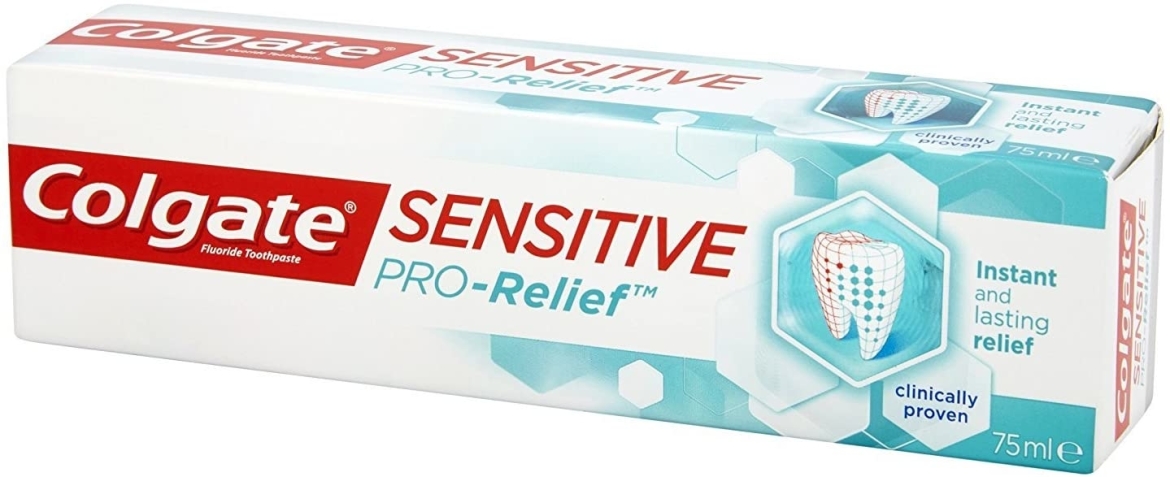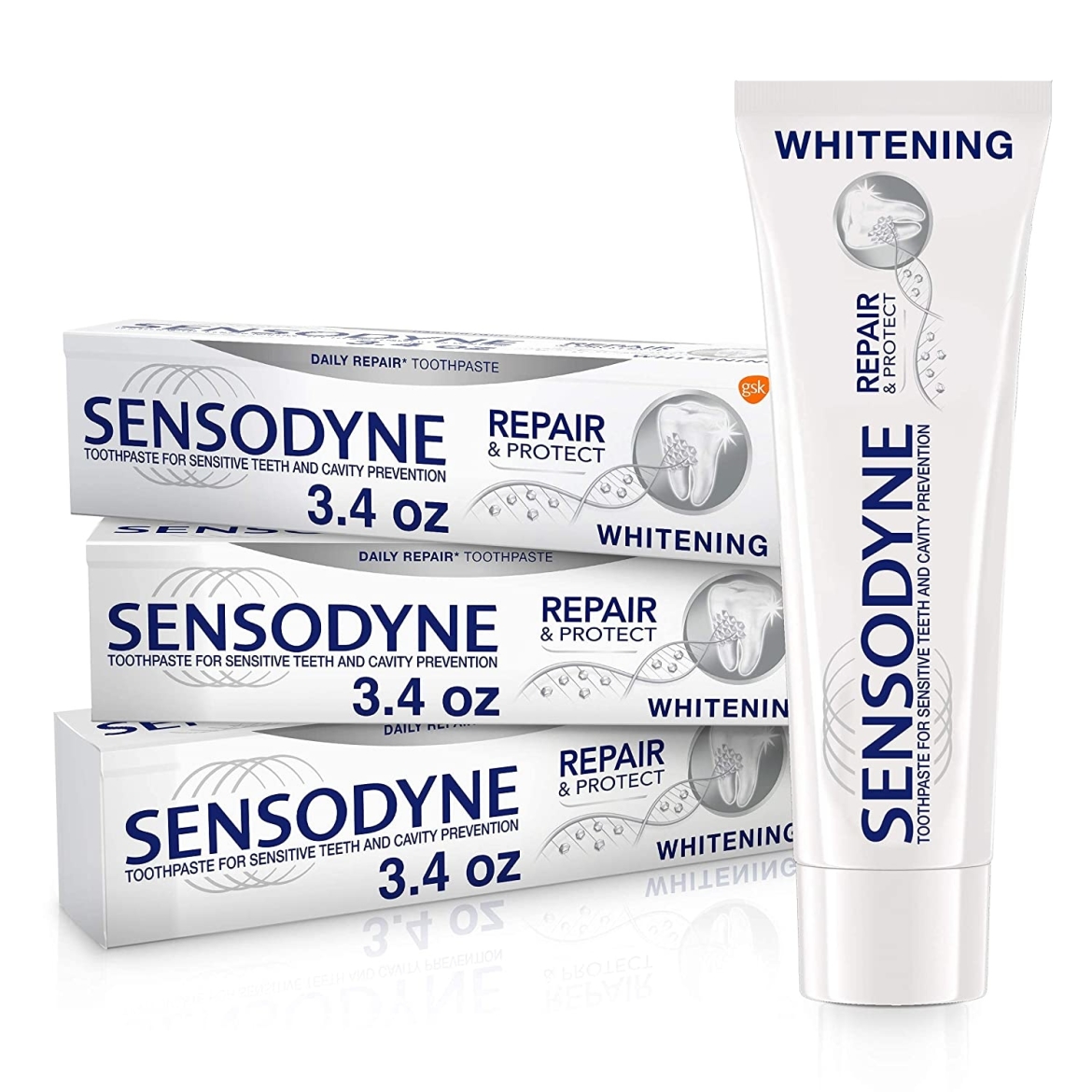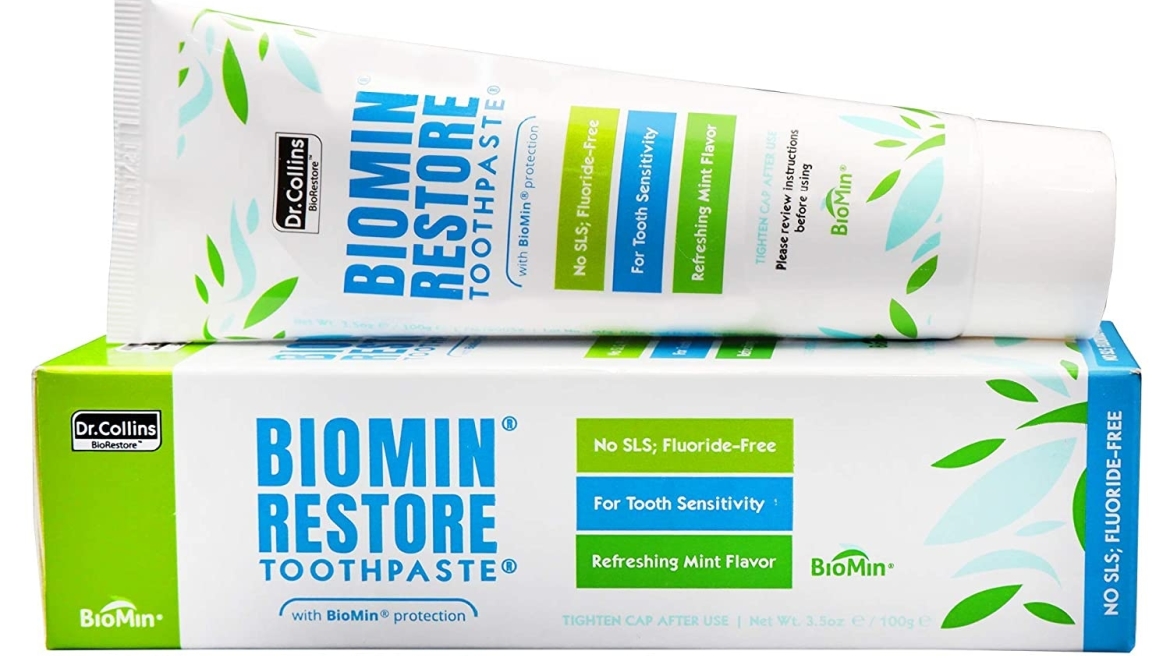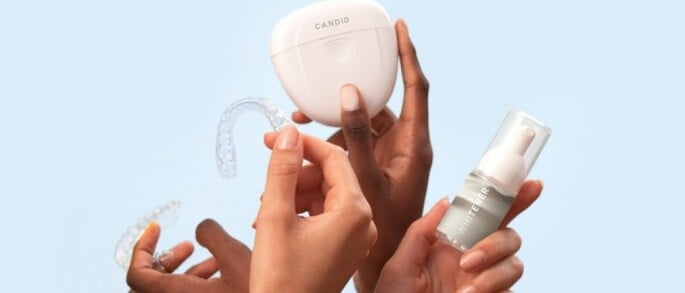Best toothpaste for sensitive teeth – According to thousands of reviews
Tooth sensitivity can turn our sweet moments into painful memories. It can turn a romantic coffee date into a nightmare. The long pleasant strolls on sidewalks while eating ice cream can become an epitome of awkwardness and unpleasantness. All of this is because of the hot and cold sensations in your teeth. That’s why we want to have a look at the best toothpaste for sensitive teeth.
The medical term for this sharp pain or discomfort when having cold or hot food is dentin hypersensitivity. Have you ever wondered if it is just normal, or are you having some problems with your teeth? If it is normal, what are the causes of tooth sensitivity, and how can you get rid of this discomfort.
Is it normal to have sensitive teeth?
Let me make the structure of the tooth clear to you. That will help you understand the answer to this question easily. A tooth has three layers.
• The outermost and hardest covering that protects the whole tooth is called Enamel.
• The inner, softer part of the tooth underlying the enamel is called Dentin. This part has tubules that transmit the hot and cold sensations to the core of the tooth.
• The innermost structure of the tooth consists of the soft tissue called the Pulp. This part has nerve endings that can feel pain.
How much sensitivity you feel varies. It depends on the thickness of enamel you have on your tooth and how many nerve endings are exposed to the exterior. Some people have thin enamel surfaces, so they feel sensitivity more often than others.
An occasional twinge is normal. If you feel sensitivity very often, you must get yourself checked by your dentist to see if there is any need for dental treatment.
Causes of Tooth Sensitivity
There are various causes of dental hypersensitivity. If the discomfort is in multiple teeth, look for some generalized problem, like gum disease. But if you only feel sensitivity in a single tooth, then there may be localized concern associated with that specific tooth, such as caries (cavities), enamel cracks, etc.
If, due to some reason, the enamel of your teeth is wearing down or getting damaged, then it will result in tender teeth. These include:
• Using a toothbrush with hard bristles
• Aggressive brushing habits
• Acidic food
• Night grinding
• Enamel cracks due to opening hard things like bottle caps with your teeth
• Caries
• Recent dental treatment, e.g., filling or crowns, may also be the cause of dentin hypersensitivity.
How do you stop sensitive teeth pain?
There are multiple treatment options, depending upon the severity.
• For mild symptoms, use desensitizing chemical agents at home in the form of toothpaste.
• If this fails, then more extensive treatment options are given. These include fillings, use of sealants, inlays, onlays, veneers or crowns, etc.
Best toothpaste for sensitive teeth in the UK & Ireland
Colgate Sensitive Pro-Relief
Colgate Sensitive Pro-Relief is probably the best toothpaste for sensitive teeth and gingivitis. There is instant relief from sensitivity within 1 minute if applied and massaged directly to the sensitive teeth.
Mechanism of action: It blocks the exposed tubes present in the dentin. Thus there will be no open tubules to the external environment, and hence there will be relief from sensitivity.
Active Ingredient: The active ingredient used for this purpose in Colgate Sensitive Pro-Relief is arginine which blocks the dentinal tubule and improves hypersensitivity. Other components include zinc salts that inhibit plaque accumulation and sodium monofluorophosphate that is beneficial for making teeth resistant to caries.

Sensodyne Repair & Protect
The most recommended toothpaste these days for sensitivity is Sensodyne Repair & Protect. It provides relief from sensitivity within 60 seconds if it is used directly on the affected areas.
Active Ingredient: The active ingredient present in this toothpaste is stannous fluoride which blocks the open dentinal tubules by forming a protective layer. It makes it the best toothpaste for sensitive teeth and receding gums.
Mechanism of action: It provides long-term relief as it also helps repair the enamel, which is the unique feature of this toothpaste. The use of this toothpaste is recommended twice daily.

BioMin
If you don’t feel any improvement in your symptoms using Sensodyne toothpaste, you must consider this an alternative. It works by the same mechanism of blocking dentinal tubules.
The unique characteristic is the slow release of fluoride for 12 hours, which is a maximum of 2 hrs for all other toothpaste. It has a minimum but effective concentration of fluoride.
Active Ingredient: It uses potassium nitrate as an active ingredient.
Mechanism of action: It works by making the nerve endings hyperpolarized. Thus, it desensitizes the nerve endings and improves dentin hypersensitivity.

Other treatment options
If you have moderate to severe symptoms and don’t feel any improvement using desensitizing toothpaste, then you must visit a dental clinic. Get yourself checked timely, where your dentist will diagnose the underlying cause and provide the best possible options available according to your condition.
Surface application of various agents in the dental clinic also improves hypersensitivity, including fluoride gel, varnish, sealants, resins, HEMA/glutaraldehyde, iontophoresis, gingival grafts, veneers, inlays, onlays, and crowns, etc.
Conclusion:
The sharp and sudden pain in teeth that respond to a hot, cold, or sweet stimulus is dentin hypersensitivity. It ranges from mild to severe depending on the underlying cause. There are various treatment modalities to treat it. The most simple and easiest is the use of home-based desensitizing agents in the form of the best toothpaste for sensitive teeth or mouthwashes. If you don’t feel any improvement, then visit your dentist.
Best Toothpaste For Sensitive Teeth ~Download in PDF





